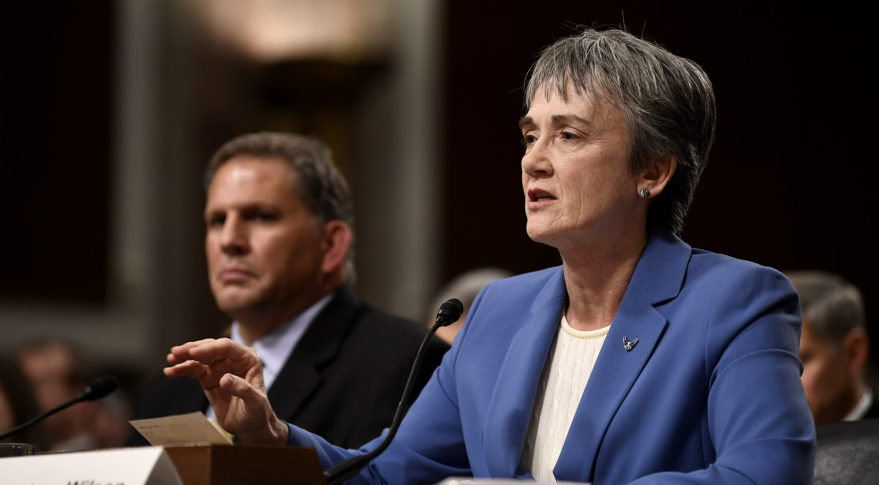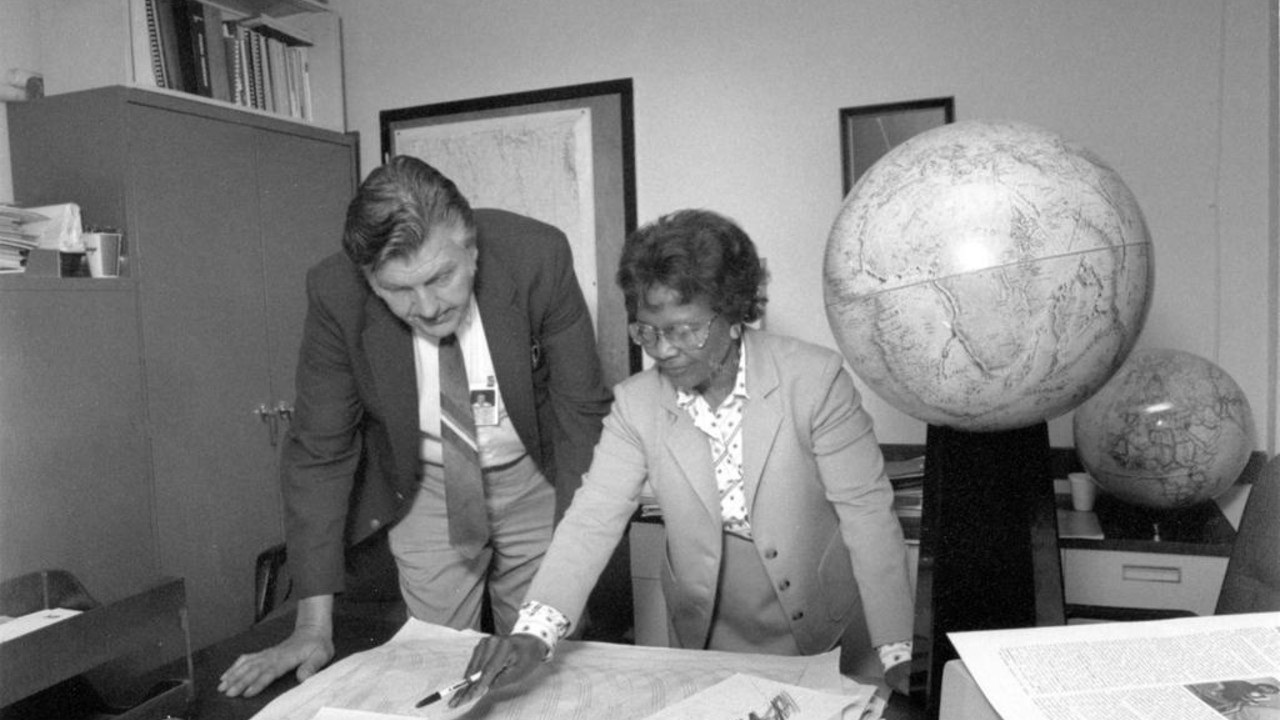2018 a Big Year of Transition for Military Space

WASHINGTON — A controversial shakeup of the military space organization mandated by Congress will get underway in 2018. Details of how and when the changes will unfold are slowly emerging.
A laundry list of provisions in the National Defense Authorization Act will reshape the military space chain of command and oversight of programs. Pentagon and Air Force officials are still grappling with the full extent of the reforms, the most significant of which is the removal of the role of principal Defense Department space adviser from the secretary of the Air Force.
"A lot of people focused on the fact that Mike Rogers' idea for a space corps didn't happen, and they missed that a lot of reform did go into this bill," Rep. Adam Smith, the ranking Democrat on the House Armed Services Committee told SpaceNews in a recent interview. [The Most Dangerous Space Weapons Concepts Ever]
Rep. Mike Rogers, chairman of the House Armed Services strategic forces subcommittee, has been a longtime proponent of creating a space corps within the Air Force with a separate chain of command. The plan was approved by the House but didn't make it past the Senate.
Smith said Rogers and other members of the HASC have not given up on the idea. "It is a big enough issue that it deserves that level of attention," he said. "I think logically, eventually, we will get to a space corps," Smith insisted. "The only reason we didn't get there this year is because the Senate wasn't fully briefed, and they weren't really on board." The space corps will get another chance, said Smith. "We will push it again."
In the 2018 NDAA, Congress weakened the Air Force secretary's power to set military space priorities and influence programs. It directs the deputy secretary of defense to figure out an alternative to the PDSA position established under the Obama administration. The first principal DoD space advisor was former Air Force Secretary Deborah Lee James. Current Secretary Heather Wilson remains in that role until a new arrangement is put in place.
Smith credited Wilson for recent efforts to move space to the forefront. "We'll see" how these initiatives play out, he said. "I like Heather Wilson, I think she's doing a good job, and I take her at her word that she is going to make some changes."
Breaking space news, the latest updates on rocket launches, skywatching events and more!
He predicts Wilson will come around to the idea of a space corps. "When she really starts to look at it, she is going to see that a space corps makes a heck of a lot of sense," Smith said. "She is sincere and she's working on making changes to improve the situation."
There is no question that space needs a higher level of attention than it has received, Smith said. "We put some changes in the bill, they want to make some changes, they want to get better but it's undeniable that over the course of the last 30 years we have not done what we need to do in space, certainly not in launch."
Lawmakers fault the Air Force for not investing in important technologies that the military needs to ensure access to space. "We got behind, we became dependent on a Russian engine, we kept using a launch vehicle that is massively expensive, we didn't take advantage of commercial opportunities," he said. "There is no question that we have been lagging."
The responsibility for military space may be too much for the Air Force to handle on top of its other missions, Smith said. "The Air Force is in charge of a lot of things. They're in charge of nuclear weapons. They're in charge of air superiority. Being in charge of space is third on that list."
It will fall on Deputy Secretary of Defense Patrick Shanahan to guide the implementation of the NDAA language. During a meeting with reporters at the Pentagon last week, Shanahan mentioned Michael Griffin — a former NASA administrator recently nominated as principal deputy undersecretary of defense for acquisition, technology and logistics — as a possible candidate to serve as principal DoD space advisor.
"What's really exciting about next year, we've got Mike Griffin on board," Shanahan said. "So when you think about somebody who has a lot of experience with space … he'll be a grand addition to the team."
Shanahan said he has had discussions with lawmakers about the space reorganization. "Chairman Rogers has been really good on 'we need to do better' … rather than redraw the lines and boxes right away," he said. "That doesn't mean we won't end up with a different structure."
A reorganization demands further study, suggested Shanahan. "I owe them a couple of reports. Those reports will really get at how we're going to do better."
This story was provided by SpaceNews, dedicated to covering all aspects of the space industry.

Sandra Erwin covers the military and national security beat as a Senior Staff Writer at SpaceNews. Sandra, based in Arlington, Virginia, specializes in Defense Department and Intelligence Community space programs, policy, budgets, technology and the industry that supports this sector. She joined SpaceNews in October 2017. Before coming to SpaceNews, Erwin covered the U.S. military, the Pentagon, Congress and the defense industry for over two decades as editor of the National Defense Industrial Association's National Defense Magazine and Pentagon correspondent for Real Clear Defense.

